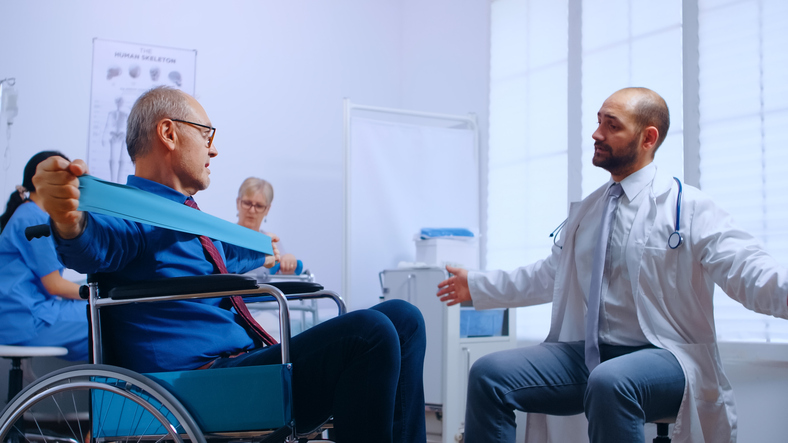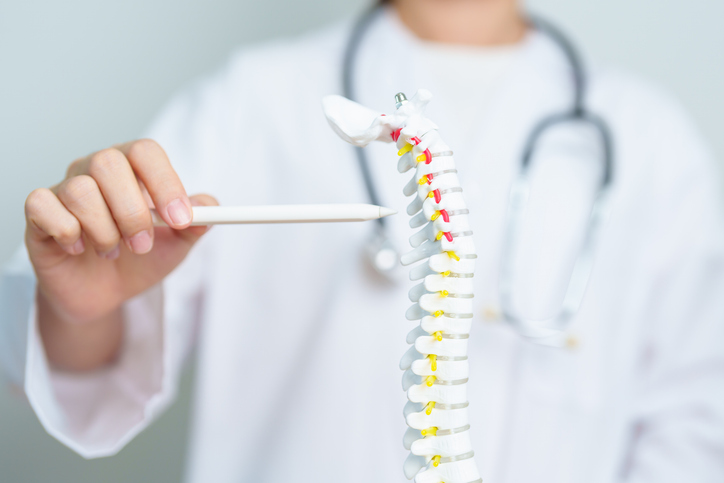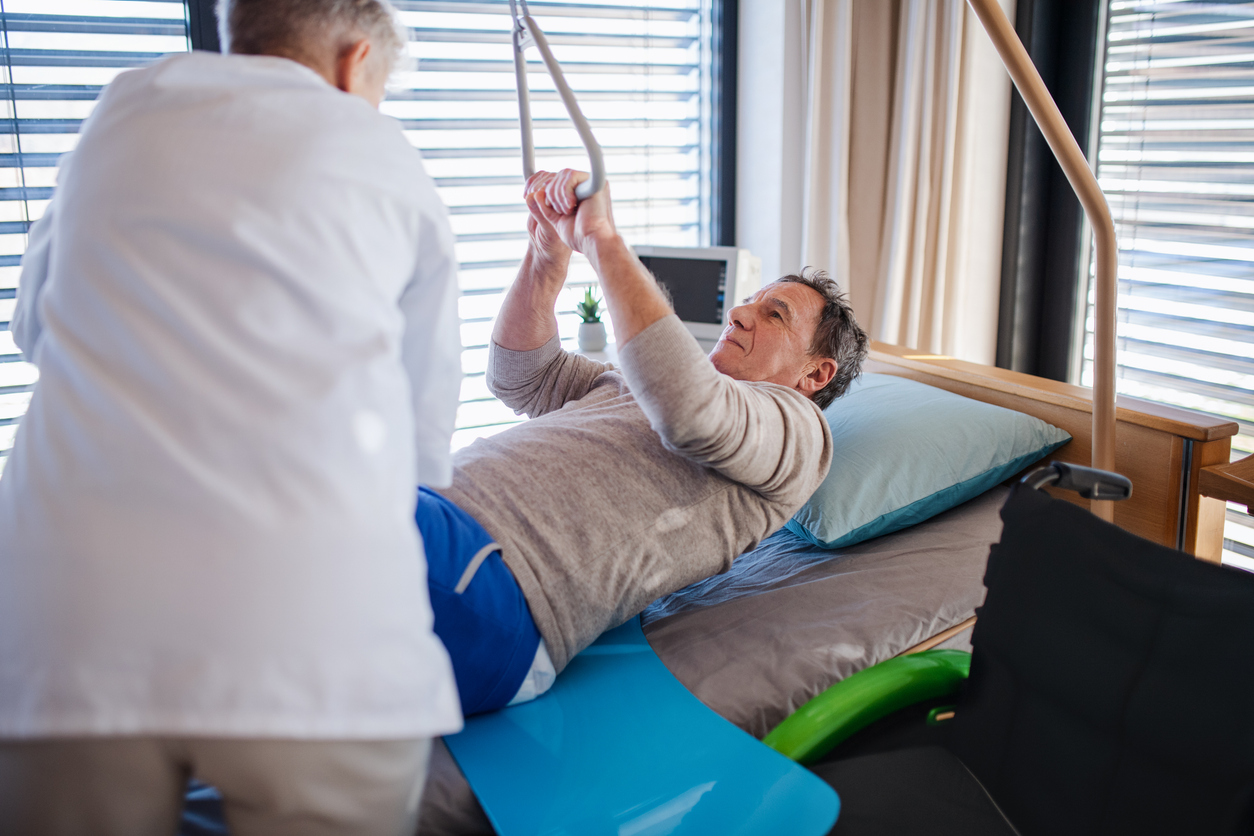
A family contacted Eximius seeking guidance and cost information for their father, who had sustained a spinal cord injury following surgical complications. At the time, the family were personally supporting him at home, managing his care needs, including night-time repositioning due to a Grade 3 pressure sore acquired in hospital. They were exploring future options and wanted to ensure they had a trusted provider with a person-centred approach in place for when they felt it was the right time to introduce professional, managed, live-in care.
To provide clarity and reassurance, a face-to-face preregistration assessment was arranged. This allowed for a detailed understanding of the client’s needs, family preferences, and care priorities, while also giving the family the opportunity to ask questions and build confidence in the Eximius approach.
Over the following six months, Eximius maintained close contact with the family, working collaboratively to design a person-centred, clinically informed care plan that could be implemented when they were ready.
During this preregistration period, we:
- Supported the family with planning and guidance while they continued providing hands-on care.
- Identified and trained a small, consistent team of live-in carers to match the client’s preferences and routine.
- Worked alongside the family and clinical leads to develop a specialist care plan, focusing on pressure care and bowel management.
- Explored potential funding options, ensuring the family were informed and prepared for the transition.
When the family decided to move forward, the preparation carried out during preregistration enabled a smooth, confident transition into managed complex live-in care.
Outcomes
Since starting with Eximius, the client’s pressure sore has fully healed, as confirmed by clinical and district nursing teams. He now sits comfortably for extended periods, enjoys meals in his reclining chair, and has been able to resume family outings after more than a year. The improved bowel management routine has reduced the need for medication and improved his overall comfort and well-being.
The preregistration process played a vital role in these outcomes—allowing the family to prepare at their own pace, ensuring care was introduced only when they were ready, and establishing trust, continuity, and clinical success from the outset.
What our client says:
We had been having difficulty with deciding on care for our dad who had become paraplegic. Eximius seemed like a lovely group that seemed to work well as an organisation, but also responsive and attentive and clearly have knowledge about spinal cord injuries. They had good continuity of contact and guided us through each step. I’m sure we would have been demanding as clients as most people would be when it comes to getting the best care for their family members, but Eximius were patient and empathetic and we always felt supported.
They found us great carers of good quality and competence, and we are in the process of trialling out our new carers. I would recommend them!
If you’d like to learn more about spinal cord injuries, recovery, and support options, we recommend visiting the NHS spinal injury guide and the Spinal Injuries Association. Both offer practical advice and trusted information for individuals and families adjusting to life after spinal injury.
If you’d like to talk through live-in care options for someone recovering from a spinal injury, our team is here to listen and help you plan at your own pace.
Frequently Asked Questions:
What does pre-registering for care mean?
It means starting the care planning process early so that a trusted care team, assessment, and plan are ready when needed.
When should families pre-register for live-in care?
Ideally before a health crisis — when you can make calm, informed decisions without pressure.
Does it cost anything to pre-register with Eximius Support?
No, pre-registration is free and gives families time to explore options before committing.
Can a pre-registered care plan be changed later?
Yes. Your plan can evolve with your loved one’s needs, ensuring consistent and flexible support.

Living with a spinal cord injury comes with its unique set of challenges that reach beyond just physical difficulties. It affects every part of daily life, demanding strength and a well-thought-out recovery plan. This article looks into how physical and occupational therapy plays a crucial role in spinal cord injury recovery.
Benefits of Physical Therapy
Improving Movement
People with spinal injuries often find it hard to move comfortably. Physical therapy creates exercises tailored to address these specific movement challenges. These exercises are like a personalised workout routine that helps improve flexibility, making it easier for individuals to do everyday activities such as bending, reaching, or walking.
Building Stronger Muscles
Spinal injuries can make muscles weaker, and that’s not good for overall health. Physical therapy begins with a plan that includes exercises to make these muscles stronger. These exercises are different for everyone as they are designed with the individual’s needs in mind. They help keep muscles healthy, and prevent them from getting weaker.
Managing Pain
Pain often comes with a spinal injury. Physical therapy also helps to decrease pain and aims to ensure it stays manageable in the future. When people feel less pain, their life improves overall.
Benefits of Occupational Therapy
Making Daily Tasks Easier
Occupational therapy is concerned with the little things in life for someone with a spinal injury. It helps them relearn new ways to do daily activities independently, from putting on clothes to cooking. The goal is to make them more independent and make their life fuller.
Using Helpful Tools and Tricks
Occupational therapy brings in tools and tricks to make life easier such as special equipment and techniques. At the same time, therapists work on optimising living spaces to ensure the person can be more independent. This may include lower surfaces in the kitchen, handrails in the bathroom, and furniture rearrangement.
Supporting Your Mind and Heart
Dealing with a spinal injury is not just about the body – it also affects how you feel inside. Occupational therapy takes into account how your mind and emotions are doing. Helping you find ways to cope gives you the mental strength to face the challenges tied to your injury.
The benefits of physical and occupational therapy in spinal injury recovery are huge. By recognising a spinal injury recovery is multi-faceted and embraces a whole-person approach, individuals can start a journey towards a stronger and more fulfilling recovery.
At Eximius, we tailor our care to fit our client’s needs perfectly. We provide dedicated, experienced live-in care so our clients with spinal cord injuries can return safely to their own homes with appropriate support in place. Contact us here for further information.
Further reading:
Nutrition and Diet for Spinal Injury Recovery
Spinal Cord Injury And Mental Health
Lumbar Spinal Cord Damage: What You Should Know
How Spinal Injuries Can Affect People and Their Families

Spinal cord injuries (SCI) have a dramatic effect on a person’s life. A spinal injury can affect movement, daily activities, and ultimately, independence. Spinal injuries can be either complete or incomplete, and knowing the difference is important so patients, families, and carers understand what to expect and how to plan for care. At Eximius Support, we provide care with kindness and understanding. This guide explains complete vs. incomplete spinal injuries, their causes, symptoms, treatment options, and ways to improve daily life.
Spinal Cord Injuries: Complete vs. Incomplete
The spinal cord sends messages between the brain and the body. But when it’s damaged, movement and feeling can be affected. There are two types of spinal cord injuries:
Complete Spinal Cord Injury: No movement or feeling below the injury.
Incomplete Spinal Cord Injury: Some movement or feeling remains below the injury.
Complete Spinal Cord Injuries
A complete spinal cord injury stops all signals from passing through the injury site. A complete injury means no movement or sensation in the affected areas. This type of injury is much more serious, so people with this type of injury require significant adjustments and support in daily life.
Causes of complete spinal cord injury:
Complete spinal cord injuries usually result from a traumatic accident but can also be caused by medical conditions. Some of the most common causes include:
- Car accidents, falls, or sports injuries.
- Severe pressure on the spinal cord from fractures or dislocations.
- Gunshot or stab wounds.
- Medical conditions like tumours or infections that cause total damage.
Effects and Symptoms:
The effects of a complete spinal cord injury depend on the level of the injury but typically result in total loss of function below the injury site. Common symptoms include:
- Complete paralysis (quadriplegia or paraplegia, depending on injury location).
- No sensation below the injury.
- Loss of bladder and bowel control.
- Breathing problems if the injury is high up on the spine.
- Risk of pressure sores and muscle weakness.
Treatment and Care:
Complete spinal cord injuries can’t be reversed, so treatment focuses on preventing complications and improving the quality of the patient’s life. Treatment options include:
- Emergency medical care to prevent further damage.
- Physical therapy to help with daily life.
- Wheelchairs, voice-activated technology, and other assistive devices.
- Medications to manage pain and muscle stiffness.
- Personal care and daily support from trained carers.
Incomplete Spinal Cord Injuries
People with an incomplete spinal cord injury still have some movement or feeling below the injury site. The amount of function depends on how much damage has occurred. Recovery potential is generally higher compared to complete injuries.
Types of Incomplete SCI:
There are several types of incomplete spinal cord injuries, each with unique effects on movement and sensation:
Anterior Cord Syndrome: Affects movement but keeps some sensation.
Central Cord Syndrome: Affects arm movement more than legs.
Brown-Séquard Syndrome: Causes weakness on one side and loss of sensation on the other.
Posterior Cord Syndrome: Affects coordination but keeps movement and pain sensation.
Cauda Equina Syndrome: Affects the lower spine, causing problems with bladder, bowel, and leg function.
Causes of incomplete spinal cord injury:
Incomplete spinal cord injuries can result from various medical conditions or trauma. Common causes include:
- Falls and accidents.
- Spinal cord pressure from herniated discs or arthritis.
- Infections, strokes, or tumours.
- Surgery complications or inflammation.
Effects and Symptoms:
Symptoms of an incomplete spinal cord injury vary greatly depending on the type and severity of the injury. Symptoms might include:
- Some weakness or paralysis.
- Partial loss of feeling.
- Muscle stiffness or uncontrolled movements.
- Nerve pain or discomfort.
Treatment and Care:
The good news is that recovery from an incomplete spinal cord injury is possible with proper medical care and rehabilitation. Treatment options include:
- Physical therapy to improve movement.
- Walkers, braces, and other mobility aids.
- Medication, massage, and other pain treatments.
- Electrical stimulation to help muscles work.
- Emotional support to help with mental health.
Living with a Spinal Cord Injury
Adjusting to life after an injury takes lots of time and support. Doctors and carers will develop personalised care plans to help patients maintain as much independence as possible. This is so important for overall well-being and a fulfilling and independent life.
Helpful Strategies:
There are several ways to improve quality of life after a spinal cord injury. Some of the most effective strategies include:
- Personalised Care Plans: Tailored to meet specific needs.
- Home Adjustments: Adding ramps, grab bars, and accessible furniture.
- Assistive Technology: Using wheelchairs, speech recognition software, and robotic limbs.
- Emotional Support: Talking to support groups, therapists, or loved ones.
How Eximius Support Can Help
At Eximius Support, we provide expert live-in care to help people with spinal injuries live with dignity and independence. Our carers and companions provide personalised support and care based on individual needs. We offer a wide range of services to ensure comfort and well-being, including:
If you or a loved one needs professional and compassionate care, Eximius Support is here to help. Contact us today to learn more about our live-in care services.
Further reading:
How Spinal Injuries Can Affect People and Their Families
Spinal Cord Injury And Mental Health
Supporting Our Clients With a Spinal Injury
Daily Mobility Challenges with a Spinal Injury

Living with a spinal cord injury (SCI) goes beyond the physical challenges. The emotional side of this journey can be tough, and it’s important to address both the body and the mind. In this article, we’ll discuss how spinal injuries can affect emotions and share helpful tips for nurturing mental well-being.
Understanding the Emotional Impact of Spinal Cord Injuries
The Emotional Rollercoaster
Navigating the emotional rollercoaster begins with acknowledging and accepting the feelings that arise. The shock of the injury can give way to a mix of grief for the life that was, anger at the circumstances, and frustration about the challenges ahead. Each emotion is a valid part of the journey, and recognising it is crucial to healing.
Impact on Mental Health
Understanding the impact of spinal injuries on mental health is essential. The emotional toll can contribute to an increased risk of conditions such as depression, anxiety, and post-traumatic stress disorder (PTSD). Understanding this connection allows individuals to take a proactive approach to both their physical and mental well-being.
Coping Strategies for Spinal Injury Patients
Building a Support System
Building a robust support system involves open communication. Expressing emotions, fears, and hopes with loved ones encourages understanding and strengthens the bond between the individual with a spinal injury and their support network. This shared understanding becomes a foundation for emotional well-being.
Professional Counselling
Professional counselling provides a safe space to explore and navigate the emotional complexities of a spinal injury. Mental health professionals with expertise in spinal injury rehabilitation offer tailored strategies for coping and adapting. This therapeutic journey becomes a valuable component of holistic recovery.
Educational Resources
Empowering individuals with information about their spinal injury is a proactive step towards mental well-being. Understanding the medical aspects of the injury and staying informed about advancements in treatments enables individuals to make informed decisions about their care, giving them a sense of control and confidence.
Mind-Body Connection in Rehabilitation
Incorporating Mindfulness and Meditation:
Incorporating mindfulness and meditation into daily life becomes a powerful tool for managing stress. These practices offer moments of calm, promoting mental clarity and emotional well-being. Simple techniques, adjusted for those with limited mobility, ensure that anyone can integrate these practices into their routine.
Adaptive Physical Activities
Recognising the link between physical activity and mental health is crucial. Tailored exercise plans, adapted to individual abilities and needs, not only promote physical well-being but also contribute significantly to emotional resilience. Engaging in adaptive sports enhances not only the body but also the spirit.
Holistic Approaches to Wellness
Holistic approaches to wellness consider the person as a whole. Therapies like yoga, acupuncture, and massage address physical and emotional well-being. Integrating these complementary therapies into the overall rehabilitation plan contributes to a more comprehensive approach to health.
Overcoming Social Isolation
Technology as a Connection Tool
Technology plays a pivotal role in overcoming the challenges of social isolation. Virtual support groups and online communities provide spaces for shared experiences and mutual support. Staying connected with friends and peers, even in the virtual realm, becomes a lifeline, combating feelings of loneliness and creating a sense of belonging.
Community Engagement
Active community engagement becomes a powerful antidote to isolation. Exploring volunteering opportunities within the local community connects individuals with others and instils a renewed sense of purpose. Community contributions provide a sense of belonging and a positive outlook towards the future.
Empowering Spinal Injury Patients to Advocate for Mental Health
Breaking the Stigma
There’s often a stigma around talking about mental health with spinal injuries. Breaking down these barriers encourages individuals to share their experiences and seek the support they need. Hearing stories of resilience and triumph helps normalise discussions about mental health.
Self-Advocacy and Empowerment
Empowering individuals to actively participate in their mental health journey is empowering. Encouraging self-advocacy means individuals can speak up about their needs and concerns. Advocating for mental health support within healthcare plans is a crucial step towards creating a healthcare system that addresses both the physical and mental aspects of recovery.
How Eximius Can Help
At Eximius, we understand that support goes beyond just physical care – it’s about providing a helping hand for every aspect of your well-being. Our commitment to live-in complex care is rooted in compassion and professionalism, recognising the unique challenges you may face. We provide a supportive environment and tailor our care to address emotional and rehabilitation needs and promote overall wellness. Our dedicated companions aim to empower you on your recovery journey.
If you or a loved one is on a spinal injury recovery journey, don’t hesitate to reach out to Eximius. Our team is here to provide the support you need. Contact us today to learn more about how we can assist you.
You may also be interested in the following:
Food, Weight and Health for People with Spinal Cord Injury
Spinal Cord Injury And Mental Health